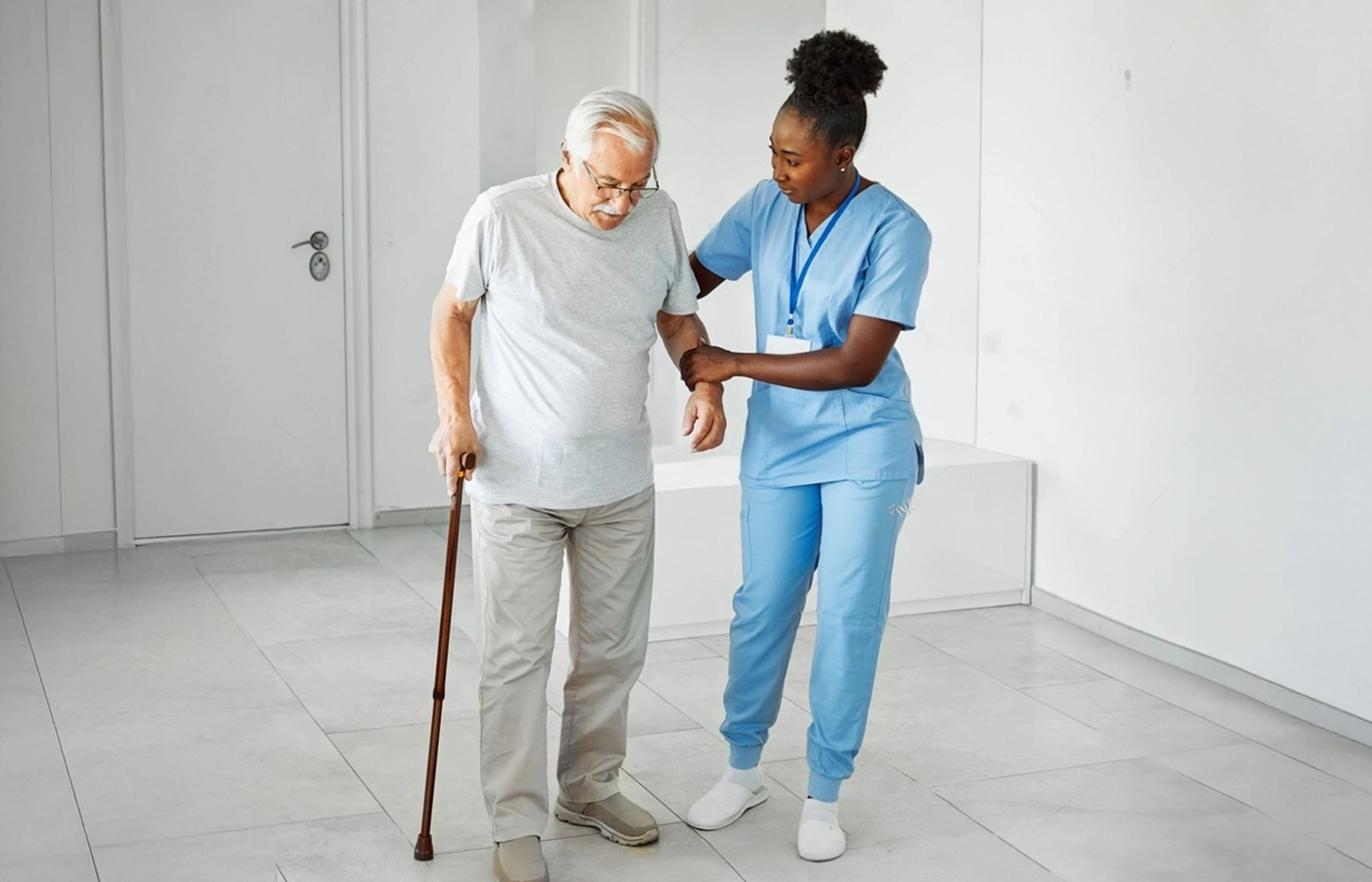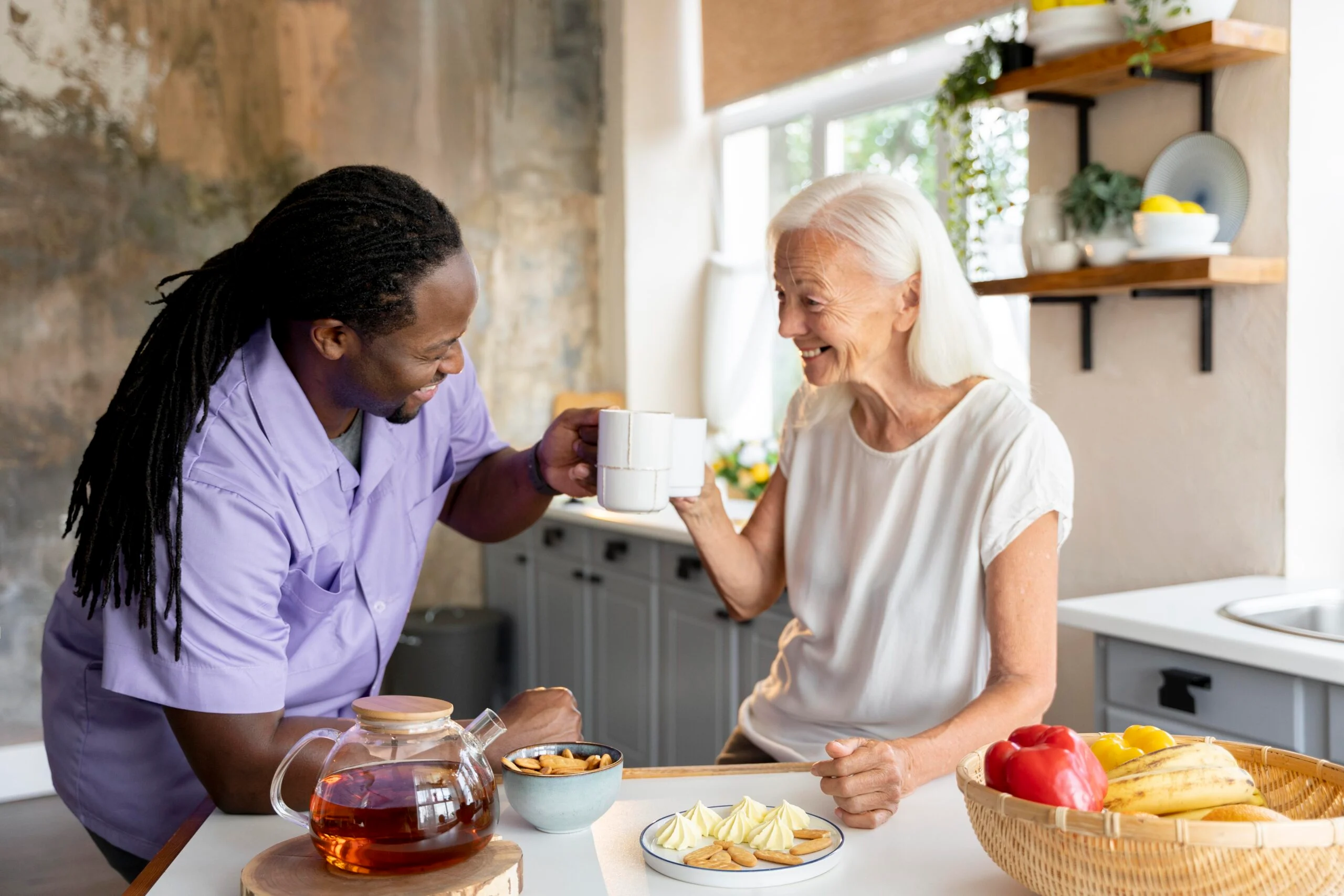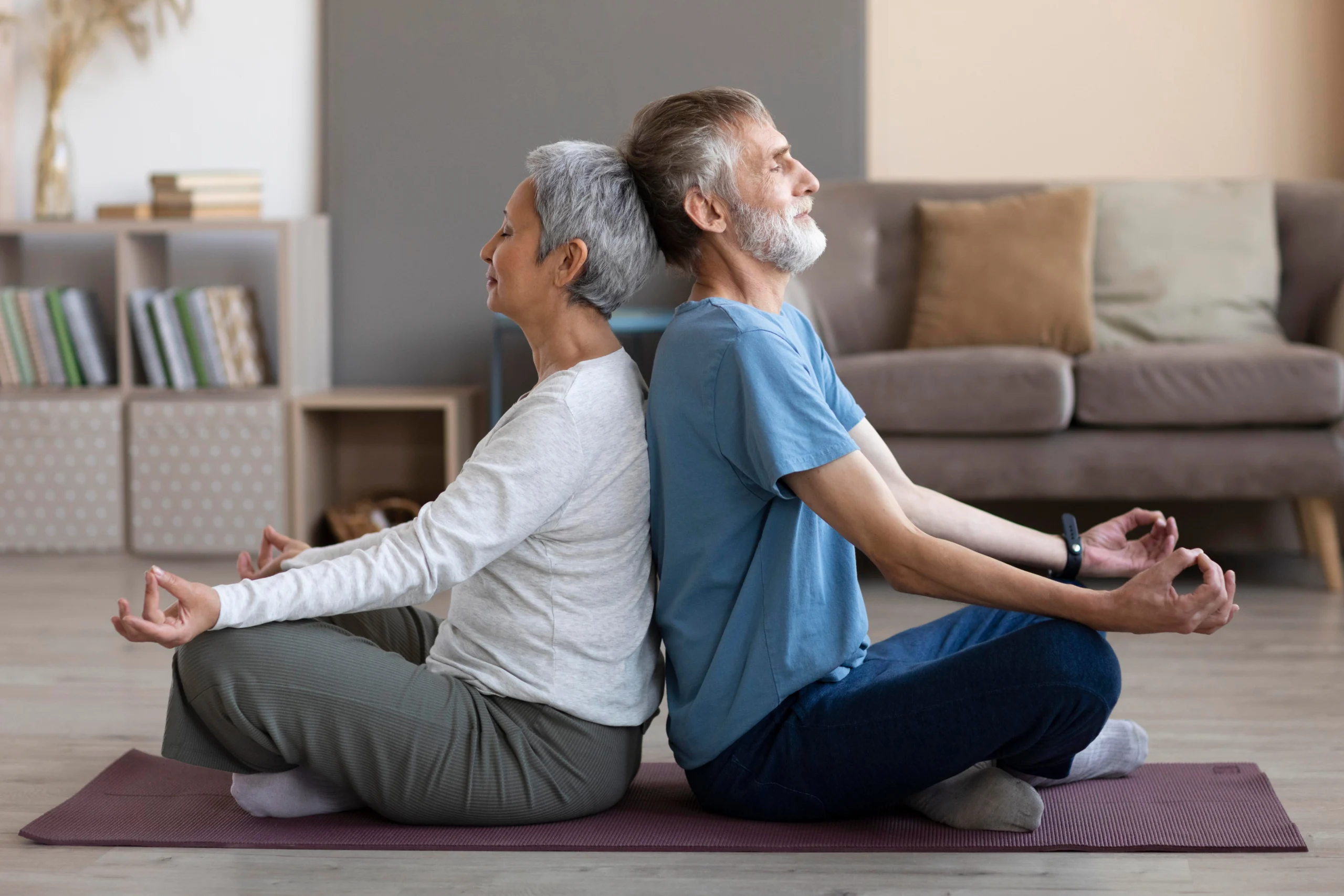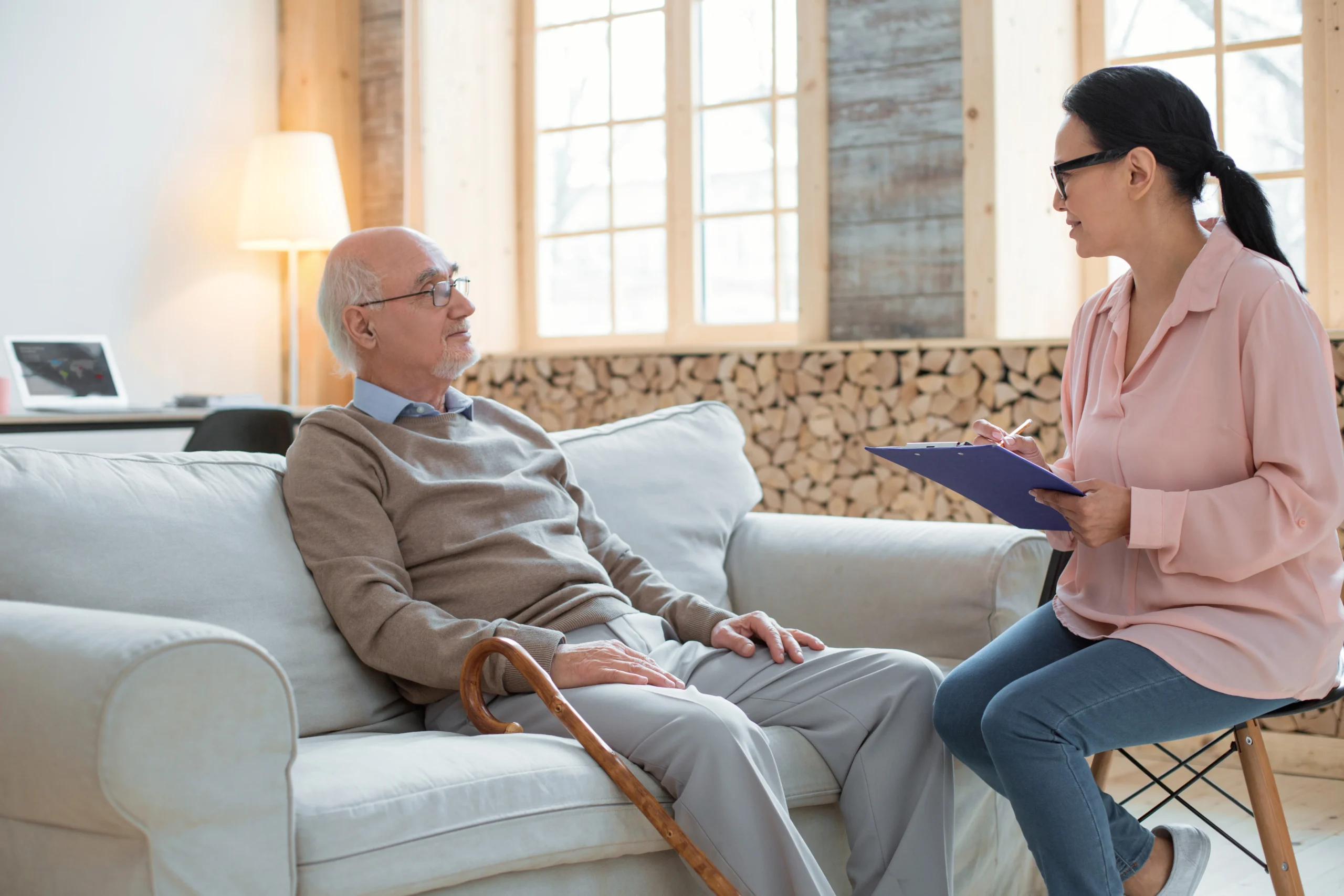A Personal Care Assistant (PCA) is a healthcare professional who provides essential support to individuals who require assistance with daily living activities. What is a PCA in healthcare? They work in various settings, including homes, hospitals, nursing homes, and assisted living facilities. PCAs offer a range of services, from personal hygiene and mobility assistance to medication management and companionship. A PCA in healthcare plays a crucial role by providing direct support and care for individuals who need assistance with daily living activities.
Responsibilities of a PCA in healthcare
- Personal Hygiene: Assisting with tasks such as bathing, showering, grooming, and dressing. This involves helping patients to safely and comfortably perform these activities, which can be challenging for individuals with disabilities or health conditions.
- Mobility: Helping individuals with transfers, ambulation, and wheelchair use. PCAs assist patients in moving from one place to another, whether it’s transferring from a bed to a wheelchair, walking with a cane or walker, or using a wheelchair for mobility.
- Meal Preparation: Preparing meals, feeding, and assisting with dietary needs. PCAs may need to follow specific dietary restrictions or prepare meals for patients with swallowing difficulties or other special needs.
- Medication Management: Reminding patients to take medications, assisting with administration, and monitoring for side effects. This involves ensuring that patients receive their medications at the correct time and dosage and observing for any adverse reactions.
- Homekeeping: Performing light housekeeping duties like laundry, cleaning, and organizing. PCAs help to maintain a clean and safe living environment for patients, which can contribute to their overall well-being.
- Companionship: Providing emotional support, engaging in conversation, and participating in recreational activities. PCAs play a vital role in providing social and emotional support, helping to combat loneliness and isolation.
The work of PCA in health care is often in a home-care setting, helping clients feel comfortable in their environment while receiving necessary care. They serve as a bridge between medical professionals and patients, helping to monitor health conditions and communicating changes as needed.
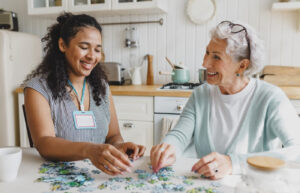
The Impact of PCAs on the Healthcare of Individuals
Let’s consider two scenarios: one where an elderly individual and their family manage without a Personal Care Assistant (PCA), and the other where they have the support of a PCA. This comparison will illustrate how the presence of a PCA impacts not only the well-being of the elderly individual but also the overall dynamic within the family.
Scenario 1: Elders without a PCA
In this scenario, let’s imagine an elderly individual named Mrs. Eva. She’s 78 years old and over the past year, her physical health has declined, making it difficult for her to manage daily activities like cooking, bathing, and moving around the house. Mrs. Eva’s children live in the same city but have demanding jobs and families of their own, so they are unable to provide consistent care.
Quality of Life for Mrs. Eva:
Without a PCA, Mrs Eva struggles with even the most basic tasks. She finds it hard to prepare meals and often skips them or relies on frozen, processed foods, which aren’t ideal for her health. Bathing becomes a challenge, so she does it less frequently, which affects her self-esteem and sense of cleanliness. She can no longer drive and has difficulty walking, meaning she rarely leaves the house and spends much of her time alone. The isolation leads to loneliness and depression, as she misses the social interaction she once had with friends and family.
Her physical health also starts to deteriorate more quickly. Without help, she often forgets to take her medication on time or takes the wrong dose. Her lack of mobility and poor diet contribute to weight loss and muscle weakness, which further diminishes her ability to get around. The risk of falls increases, and there is no one to assist her if she were to fall or experience a medical emergency.
The Family of Mrs. Eva:
Mrs Eva’s children, despite their best intentions, struggle to balance their responsibilities at work, their own families, and caring for their mother. They try to visit as often as possible, but their schedules are busy, and they can’t be there daily. Every visit becomes a stressful experience as they are faced with the reality of their mother’s declining health and unmet needs.
Over time, the family starts to feel the emotional and physical toll. They worry constantly about their mother’s safety, fearing that she might fall or forget to take her medication. They feel guilty for not being able to do more, and the pressure of caregiving, even at a distance, affects their well-being. The lack of professional care puts the family in a difficult position, often leading to feelings of helplessness and frustration.
Scenario 2: Elders with a PCA
Now let’s consider the same family with a Personal Care Assistant. Mrs. Eva’s children decide to hire a PCA to visit their mother for a few hours each day. The PCA helps Mrs. Eva with bathing, meal preparation, medication reminders, and mobility around the house.
Quality of Life for Mrs. Eva
With the help of a PCA, Mrs. Eva’s life improves dramatically. She no longer has to worry about struggling with daily tasks, as her PCA helps her maintain her hygiene and prepare nutritious meals tailored to her dietary needs. Her diet improves, and with proper nutrition and hydration, she feels stronger and more energetic. The PCA also assists her with light exercises, helping her maintain mobility and preventing muscle weakness.
More importantly, the PCA provides companionship. Mrs. Eva now has someone to talk to and share her thoughts with daily. This social interaction brightens her mood, helping to combat the loneliness she once felt. The PCA also helps her with transportation to social events or even just for a walk around the neighbourhood, enabling Mrs Eva to stay connected with her community.
With regular medication reminders, Mrs. Eva no longer misses doses or takes the wrong medications. This consistency helps stabilize her health condition, reducing the risk of hospitalizations or emergencies. The PCA is also trained to observe changes in her health, so if any concerning symptoms arise, the PCA promptly informs the family or healthcare provider, ensuring early intervention before problems worsen.
The Peace of Mind for Mrs. Eva’s Family
For Mrs Eva’s children, having a PCA brings immense relief. They no longer have to worry constantly about their mother’s well-being because they know she is in capable hands. The PCA ensures Mrs Eva is eating well, taking her medications, and staying active. This professional support allows her children to focus on their jobs and families, knowing that their mother is receiving personalized, attentive care every day.
Instead of their visits being filled with stress over managing daily tasks, Mrs Eva’s children can now focus on enjoying quality time with their mother. They no longer feel guilty for not being able to be there all the time because they know their mother is safe, healthy, and happy. The emotional strain of caregiving is reduced, allowing them to maintain their own well-being while still being there for their mother when she needs them.
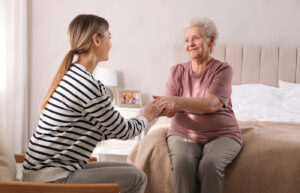
Challenges and Rewards of Being a PCA
We’ve seen how impactful PCAs are in healthcare. While their presence makes a significant difference in the lives of individuals, there are certain challenges that a PCA faces in the process of providing services.
Working as a PCA is both challenging and rewarding. On one hand, the job can be physically demanding and emotionally draining. PCAs often work with individuals who may have complex physical and emotional needs, and balancing these requirements while maintaining professionalism can be taxing.
On the other hand, the rewards of the job are significant. PCAs make a real difference in the lives of those they care for. Their efforts often result in improved quality of life, better mental and emotional health, and a stronger sense of security and independence for their clients. For those who are passionate about helping others, the role of a PCA can be deeply fulfilling.
Kizuna: Connecting You With Care
Kizuna is committed to making the process smooth, simple, and secure for both caregivers and families. As a marketplace, Kizuna connects families with trusted caregivers for their loved ones. Every caregiver undergoes background checks and vetting, offering multiple options based on location, cost, and personal preferences, ensuring families can easily find the right match for their loved ones.
Kizuna also empowers caregivers by providing support in terms of work ownership, pay scale, assistance with administrative tasks, and more. By simplifying these processes, Kizuna allows caregivers to focus on delivering their best care.
If you’re looking for trusted care for your loved ones, Kizuna is the place to be.
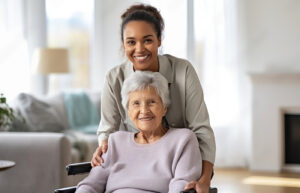
FAQs:
How do I know if a PCA is the right fit for my family?
Choosing the right assistance involves reviewing their qualifications, experience, and compatibility with your loved one. It’s also helpful to read reviews, ask for references, and conduct interviews to ensure the caregiver aligns with your family’s needs and expectations.
You can also be a part of dedicated platforms like Kizuna, which is a marketplace to find all available caregivers with their information, details, reviews, background, etc.
How can I find PCAs for elder care near me?
Do niche organic searches like dedicated caregivers in San Francisco, the North Bay Area, and even in Marin County, Sonoma County, and other such specific locations to provide personalized care.
Or use a dedicated platform that filters searches by location to make the process easier, more convenient, and error-free.
How do I know if I need a PCA?
You may need a PCA if you or someone you know requires assistance at home with activities of daily living, such as:
- Dressing, feeding, personal hygiene, control activities like balancing or sitting, ambulations or movement exercises
- Light house cleaning
- Planning and cooking food
- Shopping for essential and non-essential items
- Transport to and from doctor’s and other appointments.
How can I find a PCA in the North Bay Area?
You can find caregivers in the North Bay Area by using online platforms that specialize in caregiving services. Look for local directories, community resources, or dedicated marketplaces like Kizuna, where you can filter searches by location and find caregivers with relevant experience and qualifications.
Are PCAs in Marin County and Sonoma County trained and certified?
Yes, many caregivers in Marin County are trained and certified in personal care and elder support. It’s important to verify their credentials and experience to ensure they can provide the level of care your loved one needs.
Can I get a PCA for short-term care in Marin County and Sonoma County?
Yes, many caregivers in Sonoma County offer flexible arrangements, including short-term care. Whether you need temporary assistance or a caregiver for a few hours a week, you can find options that suit your needs through local services or platforms like Kizuna.
